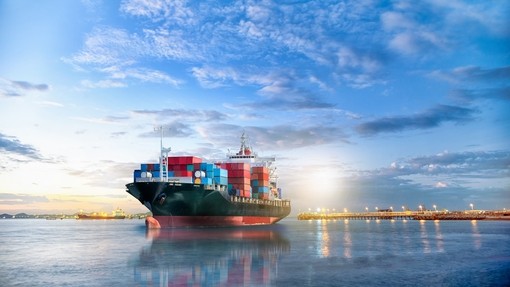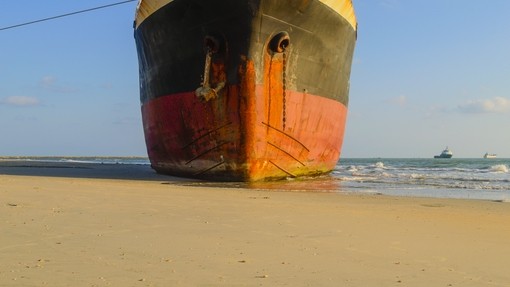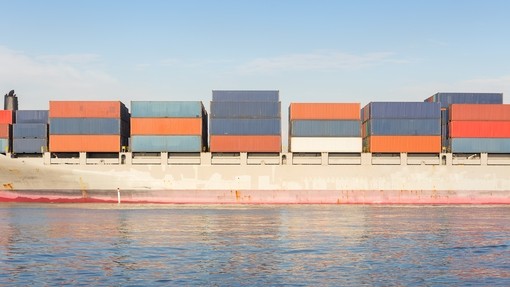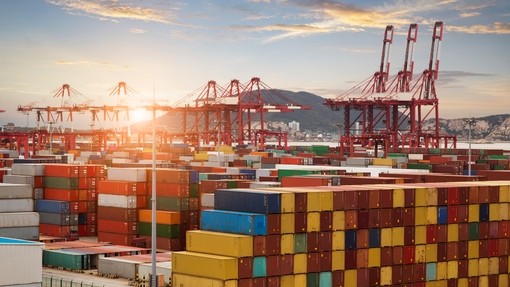Deep Sea Maritime Ltd -v- Monjasa A/S The ”ALHANI” [2018] EWHC 1495 (Comm)

Details
In this case the court considered owners’ application for a declaration that they could rely on the 12 month time bar under Article III Rule 6 of the Hague Rules where the cargo had been delivered wrongfully without surrender of the bill of lading and the effect of proceedings brought in breach of an exclusive jurisdiction clause.
Factual background
Deep Sea Maritime (Deep Sea) owned and operated the “ALHANI” (the vessel), an oil product tanker.
By a bill of lading dated 12 November 2011 (the bill) Deep Sea acknowledged shipment on board the vessel of 4,844.901mt of bunker fuel (the cargo). Monjasa was the shipper of the cargo for carriage from Lome, Togo to Cotonou, Benin.
Clause 1 of the bill incorporated the terms and conditions of a time charterparty dated 7 July 2011 (the charterparty) between Deep Sea and Unitaes Energy Sources Company Limited (Unitaes). Clause 46 of the charterparty provided for English law and for all disputes to be referred to the High Court in London. By addendum no. 1 to the charterparty, Babecca Business Links Limited (Babecca) agreed to perform the obligations of Unitaes.
Neither Benin nor Togo were parties to the Hague or Hague-Visby Conventions, therefore, by clause 2 of the bill, the Hague Rules were incorporated into the bill as a matter of contract.
Under a contract of sale dated 28 October 2011 Monjasa sold the cargo to Unitaes. A letter of credit was established in favour of Monjasa, but payment was declined due to alleged documentary discrepancies. On 16 November 2011, Babecca entered into a contract to sell the cargo back to Monjasa. Monjasa complained that it bought the cargo back in ignorance of the fact that property had never passed from Monjasa to Unitaes due to the operation of the retention of title clause.
On 18 November 2011 Deep Sea discharged the cargo by a ship-to-ship transfer, without production of the bill. Deep Sea said that this was in accordance with instructions under the charterparty. Deep Sea accepts that there is an arguable case that the cargo was not delivered to Monjasa.
Monjasa brought four sets of proceedings in relation to the alleged non-delivery of the cargo in Tunisia, the People’s Republic of China, France, and finally England on 17 March 2017. In the meantime Deep Sea brought this claim on 15 February 2017 seeking a declaration of non-liability under the bill. Deep Sea applied for summary judgment.
Legal issues
The court had to consider two important issues in relation to the law of carriage of goods by sea:
- Whether the time bar created by Article III Rule 6 of the Hague Rules (the rule) applied to claims for wrongful misdelivery where the shipowner had delivered the cargo to a third party without the production of the bill of lading, and
- Whether the requirement in the rule that suit must be brought within one year after delivery of the goods could be satisfied if proceedings were commenced in the courts of one country when exclusive jurisdiction had been given to the courts of another country.
Issue 1
The judge considered the following three questions as part of this issue: (1) whether the rule was capable of applying to misdelivery claims; (2) whether it was limited in its application to breaches of the Hague Rules obligations; and (3) whether there was any settled understanding that the rule did not apply to misdelivery claims.
The judge said the answer to the first question was clearly ‘yes’. The judge acknowledged that the courts had emphasised the width of the words ‘in any event’ in the context of Article IV Rule 5 (limitation of liability) and arguments that they were insufficient to apply to particular types of breach were rejected. Further, the object of finality, which the rule was intended to achieve, would be seriously undermined if the rule did not apply to misdelivery claims. Therefore the judge said if the rule was not to apply to misdelivery claims, the reason had to be found in the context of the Hague Rules more generally, or in the fact that the rule had acquired a settled meaning which did not involve such application.
In dealing with the second question, the judge held that it was generally recognised that the rule is not limited in its applications to claims formulated as an allegation of a breach of the Hague Rules, it being well established that a cargo claimant could not circumvent the limitations and exclusions in the Hague Rules by suing the shipowner for the torts of negligence, or conversion, or breach of bailment: The New York Star [1980] 2 Lloyd’s Rep 317. The defendant’s submission therefore had to be that the rule only applied to claims capable of being pleaded as a breach of the Hague Rules. The judge considered misdelivery was such a claim. It was a breach of the central obligation carefully to load, handle, stow, carry, keep, care for and discharge the cargo.
The principal material relied upon by the defendant in relation to the third question was extracts from the ‘travaux préparatoires’ to the Visby amendments to the Hague Rules. In considering this the judge said the travaux to an amending convention were not the most fertile territory from which to establish a settled understanding of the pre-convention law. The judge considered the relevant materials and held that there was no consensus on the issue of how far, if at all, the Hague Rules applied to cases of misdelivery. The judge said the further difficulty with this was the fact that the travaux préparatoires appeared to have been as much about whether the rule should apply to misdelivery occurring after the period of the Hague Rules responsibility rather than whether it did apply to misdelivery at all.
The judge therefore concluded that Article III Rule 6 applied to misdelivery claims, at least where the misdelivery occurred during the period of the Hague Rules period of responsibility.
Issue 2
The defendant sought to argue that this issue was satisfied as the Tunisian proceedings had been brought within the one year time limit. The judge disagreed and said that where proceedings were brought in a particular court in breach of an (exclusive) agreement to bring claims in another forum, then, save in exceptional circumstances, those proceedings would not be regarded as ‘suit’ for the purposes of Article III Rule 6. The judge held that there were no such exceptional circumstances in this case. He also noted that it was striking that there was no evidence of Monjasa ever asking Deep Sea for a copy of the charterparty at the relevant time, even though the bill referred to it.
The Tunisian proceedings, in which the vessel had been arrested, were the only proceedings commenced within the 12 month limitation period. There was evidence that the Tunisian proceedings were subject to an appeal by Monjasa. The judge noted that Deep Sea had not sought an anti-suit injunction in relation to the Tunisian proceedings.
Therefore the judge held that Monjasa’s claims were time-barred save for the extent that the claims in the Tunisian proceedings continued to judgment.
Case comment
This is an important case which confirms that Article III Rule 6 of the Hague Rules applies to claims for misdelivery without production of a bill of lading. It is also arguable that the same applies with regard to the Hague Visby Rules given the even more unequivocal wording (‘whatsoever’) of the Rule. However, it is important to note that the judge stated this was the case where the misdelivery occurs during the period of the Hague Rules period of responsibility. It is yet to be seen what the position would be if the misdelivery was to take place outside of that period.
This case also acts as a warning of the consequences of not complying with an exclusive jurisdiction clause or not making enquiries for the charterparty referred to as incorporated in the relevant bill of lading and the importance of bringing timely proceedings in the correct jurisdiction.
This article originally appeared in the August 2018 edition of shipping case digest. Other articles include:






